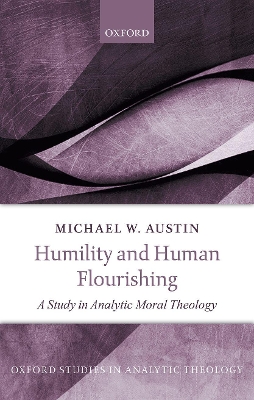Oxford Studies in Analytic Theology
1 total work
In many Christian traditions, humility is often thought to play a central role in the moral and spiritual life. In this study of the moral virtue of humility, Michael W. Austin applies the methods of analytic philosophy to the field of moral theology in order analyze this virtue and its connections to human flourishing. The book is therefore best characterized as a work in analytic moral theology, and has two primary aims. First, it articulates and defends a
particular Christian conception of the virtue of humility. It offers a Christological account of this trait, one that is grounded in the gospel accounts of the life of Christ as well as other key New Testament passages. The view of humility it offers and defends is biblically grounded, theologically
informed, and philosophically sound. Second, the volume describes ways in which humility is constitutive of and conducive to human flourishing, Christianly understood. It argues that humility is rational, benefits its possessor, and contributes to its possessor being good qua human. Austin also examines several issues in applied virtue ethics. He considers some of the ways in which humility is relevant to several of the classic spiritual disciplines, such as prayer, fasting, solitude,
silence, and service. He considers humility's relevance to issues related to religious pluralism and tolerance. Finally, the book concludes with a discussion of the relevance of humility for family life and how it can function as a virtue in the context of sport.
particular Christian conception of the virtue of humility. It offers a Christological account of this trait, one that is grounded in the gospel accounts of the life of Christ as well as other key New Testament passages. The view of humility it offers and defends is biblically grounded, theologically
informed, and philosophically sound. Second, the volume describes ways in which humility is constitutive of and conducive to human flourishing, Christianly understood. It argues that humility is rational, benefits its possessor, and contributes to its possessor being good qua human. Austin also examines several issues in applied virtue ethics. He considers some of the ways in which humility is relevant to several of the classic spiritual disciplines, such as prayer, fasting, solitude,
silence, and service. He considers humility's relevance to issues related to religious pluralism and tolerance. Finally, the book concludes with a discussion of the relevance of humility for family life and how it can function as a virtue in the context of sport.
